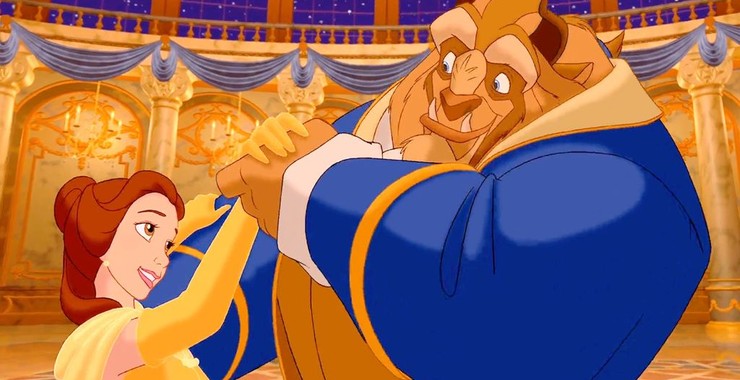
“Tale as old as time,” Mrs. Potts sings in the titular song from Beauty and the Beast (1991). It’s a statement of Biblical proportion, perhaps playing on “in the beginning was the Word” from the book of John. It’s easy to take this statement as simply hyperbolic, a way to express cyclical storytelling methods. Disney movies have recurring themes and tropes, after all – the daring prince, the true love’s kiss, the cute inhuman sidekick, the “I Want” song. But Beauty and the Beast has another element that sets it apart, that, as Mrs. Potts alludes, catapults it into a discussion of faith that, indeed, is Biblical in origin.
Beauty and the Beast is a simple tale – an inhospitable prince is turned into a frightening beast, sentenced to a forever fate unless he can find someone to love him before the final petal on his magical rose falls. A village girl, Belle, is imprisoned in his castle – at first irritated by the Beast’s crass and selfish ways, but ultimately falling in love with him as he learns to play the role of a gentleman. The two kiss just as the last petal falls, and the Beast is transformed back into a handsome prince – one who has learned his lesson and now knows how to act as befitting his station.
Technically, this is a complete plot synopsis. However, it neglects to mention the colorful side characters – the servants in the Beast’s castle who were also turned, through no fault of their own, into household objects – candelabras, furniture, kitchen utensils, doomed to forever remain in this inhuman state of frustration and longing unless they are saved, not by their own hand, but through the actions of one man.
A little too on the nose, perhaps, to write of the Beast as a Christ figure, but I posit that there is a connection between the servants’ fate and the concept of original sin. They are destined for a horrible fate based on the actions of someone else that affected their entire world – check. They are unable to save themselves – check. They use their own works to assure their salvation by pushing the Beast and Belle towards each other, orchestrating their romance – check and check. The song “Human Again,” famously deleted from the original soundtrack and included in the stage musical and the 2002 re-release, details their longing for salvation from their inhuman fate, as they sing, “If it all goes as planned / our time may be at hand any day now.” But they can’t plan, not really. It’s not in their hands, for they cannot force two people to love one another – much in alignment with the Bible’s statement that, “For by grace you have been saved through faith. And this is not your own doing; it is the gift of God, not a result of works, so that no one may boast” (Ephesians 2:8-9, ESV).
Was this Walt Disney’s intention through the retelling of this classic tale to create a touching reminder of the fullness of grace without works? Unlikely, but it makes that element of the story no less thought-provoking. One man, experiencing death and rebirth so that others might be freed from eternal prison they are in through no fault of their own? Tale as old as time, indeed.
— Rachel Davis (2022)
1, Directed by: Gary Truesdale, Kirk Wise
- Produced by: Don Hahn
- Written by: Linda Woolverton
- Music by: Alan Menken
- Editing by: John Carnochan
- Release Date: 1991
- Running Time: 84 min.
- Language: English
Arts & Faith Lists:
2022 Top 25 Movie Musicals — #9